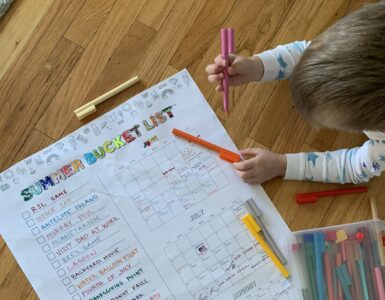Carly Hazen, an executive recruiter with Prince, Perelson and Associates, says confidence is the key to a successful interview.
Top Interview Tips
1) Start with a resume – make sure the resume you present during an interview has been tailored specifically for the job you are applying for. This would include incorporating any key words, phrases, headings or skill sets included in the job description. This tailoring is entirely truthful and very effective in landing more interviews because it allows job seekers to apply for, and appear qualified for, a wider range of jobs.
2) Do your research – learn as much as you can about the company you are applying to and make sure to have several answers prepared for the question, “why do you want to work here?” Your answers should align with the company’s mission, objective, strategy and goals for the future.
3) Practice makes perfect – role play a few situations with someone you trust before attending an interview. Your conduct, level of confidence, interpersonal skills and your ability to articulate intelligent and well thought-out responses to questions are crucial to building a good rapport during an interview.
4) Create an image – polishing your appearance for an interview goes much deeper than what you choose to wear. You are presenting a head-to-toe image to your future employer that should err on the side of conservatism. A two-piece matching suit is always a safe choice along with limited jewelry, manicured nails and avoiding the use of cologne or perfume. You will have plenty of time to showcase your individualism – after you get the position.
5) Know yourself – have goals to discuss about where you want to be professionally in a few years and a list of accomplishments on hand that closely relate to the position. It’s also important to mention what you are doing to further your education and knowledge about that particular industry. Avoid discussing any personal topics, unless asked directly, even if you feel comfortable doing so (marital status, family, friends, religion and recreation).
6) Ask questions – employers always want to interview someone engaged and interested in what they do, so ask! However, these questions should not extend to inquiries about compensation, benefits, holidays, time off or flexible schedules. This will all be covered during the offer stage.
7) Show your gratitude – being selected to interview for a position, especially during a recovering economy, is a valuable opportunity, so make sure to express your appreciation at the close of an interview. Make eye contact, say thank you for the opportunity and always send a brief thank you letter (or at least an email) afterward.
Job Search Techniques
Quality job search techniques are less about finding open positions and submitting your resume and more about tapping into those hidden resources that can lead to unadvertised and undiscovered opportunities. Take some time to generate a network, create a LinkedIn Profile and start cultivating active relationships with your contacts – friends, family, neighbors, college alumni, people in associations – anyone who might help generate information and job leads. The currency for successful networking should be reciprocity, not greed, so be mindful of how you can help anyone you come across by recommending them to people you know as well. You can be very direct and ask for job leads, or try a less formal approach and ask for information, referrals and advice. On average, 60% of people in transition find their next opportunity through networking, so educate yourself on how it can work for you.
Other Interview Tips:
• Use a firm and confident handshake (not limp, but not aggressive)
• Do not sit before the interviewer sits down
• Make direct eye contact and listen carefully
• Have good posture and do not slouch in your chair, put your hands in your pockets or fold your arms defensively
• Avoid looking at the clock, your watch or cell phone
• Lean slightly forward to look interested in the conversation
• Speak clearly and confidently – especially when you discuss your qualifications for the role and your “soft skills” (see below)
Here are some examples of soft-skills:
Broad social skills
Good team-building skills
The ability to work well with others and delegate
effectively
Strong communication skills
A good working knowledge of the industry
The potential to learn new tasks and advance quickly
A professional work ethic
Strong organizational skills
The ability to analyze situations and make executive
decisions
These skills are just as important as hard skills or quantitative skills – such as knowledge of computer programs, math skills, acquired degrees or certifications, etc.
Carly Hazen is the Director of Legal Recruitment for Prince,Perelson & Associates and a partner in the Finance and Accounting recruitment division.
PRINCE, PERELSON & ASSOCIATES
2180 South 1300 East | Suite 350 | SLC, UT 84106
Office: 801.532.1000 | Fax: 801.532.7676
www.perelson.com















Add comment